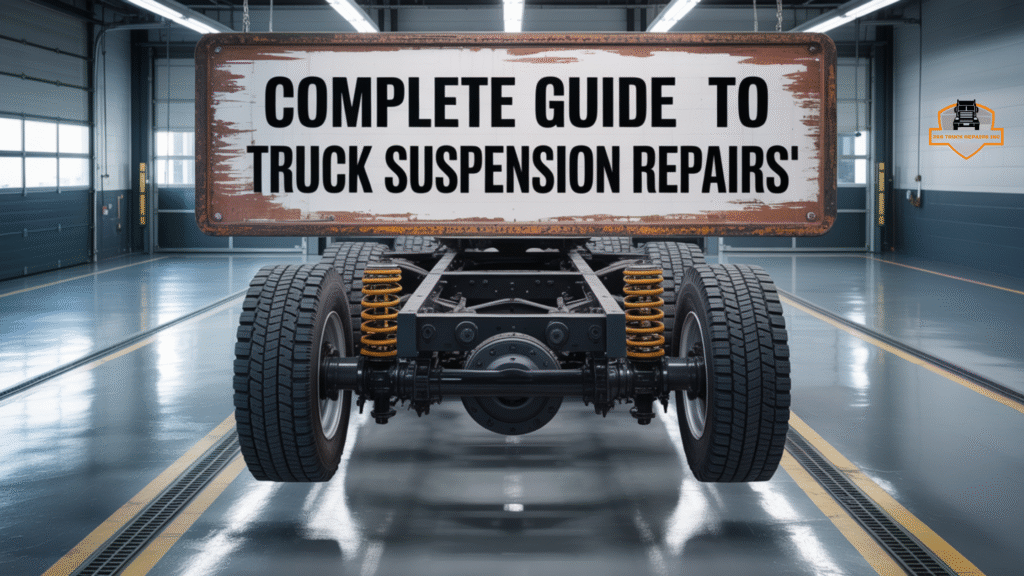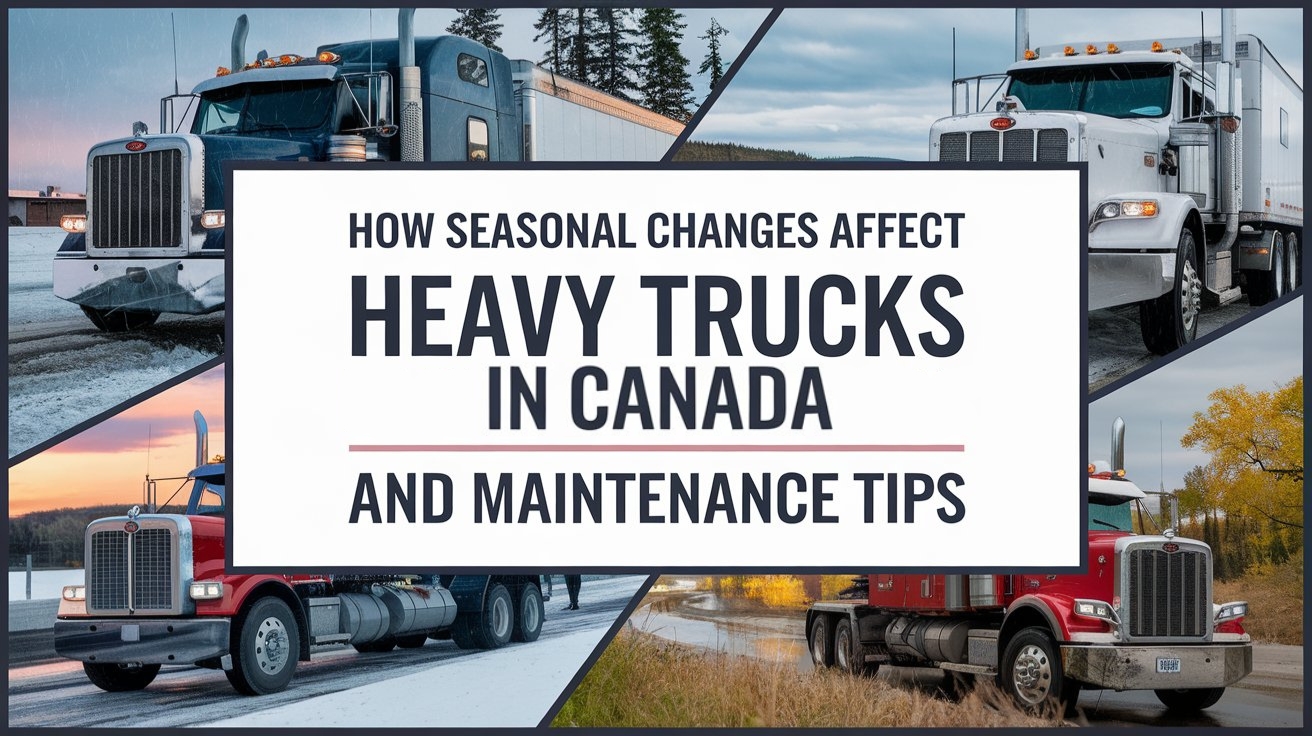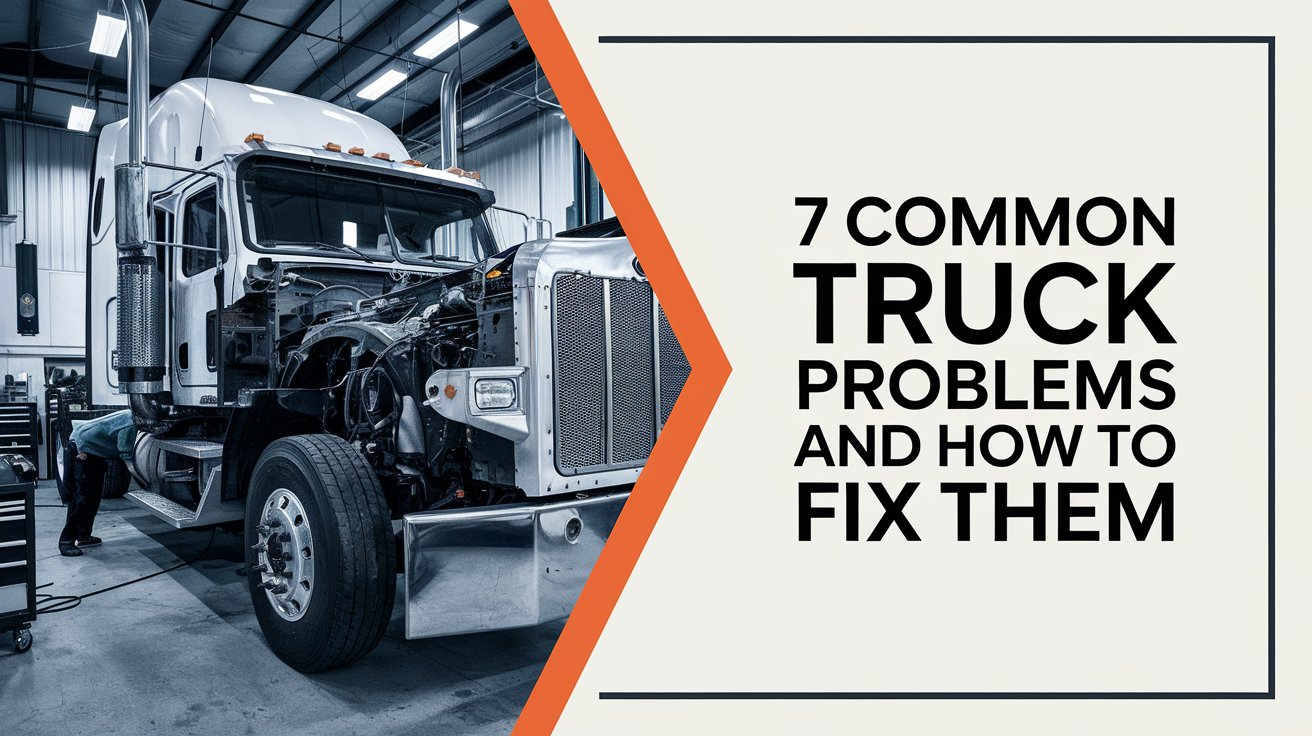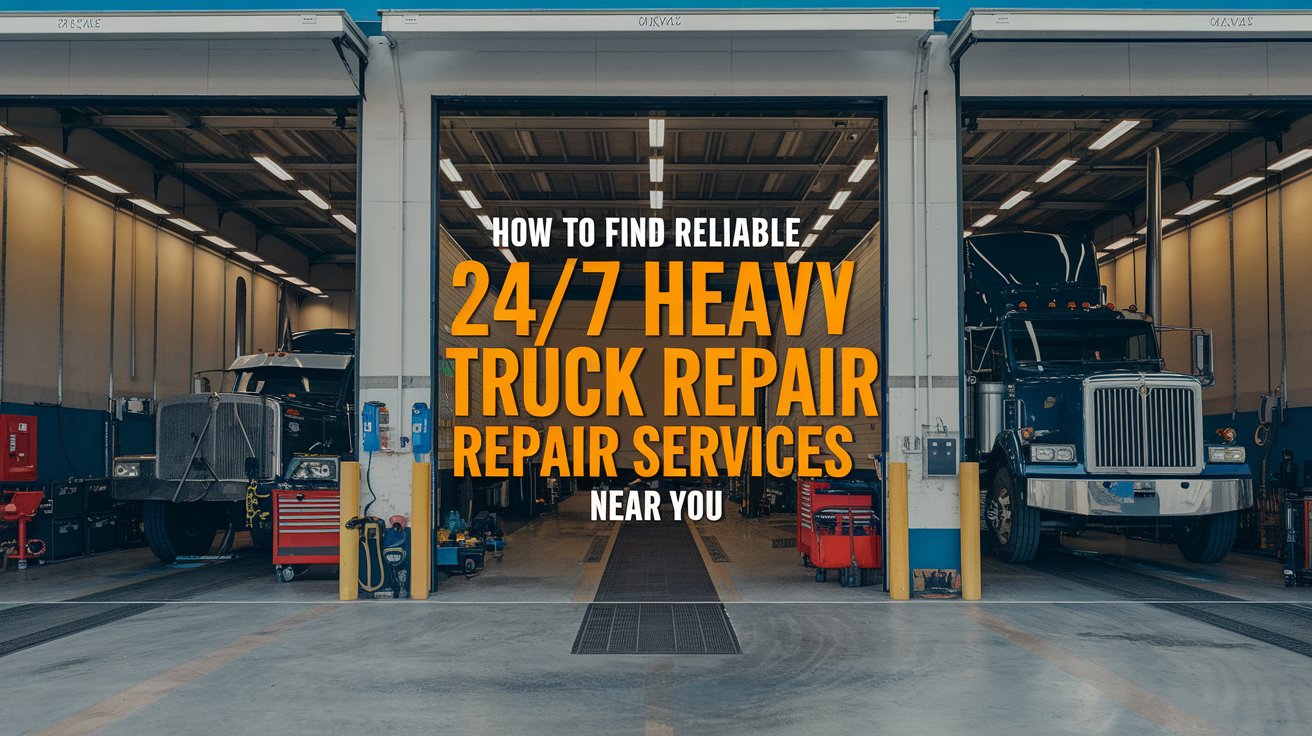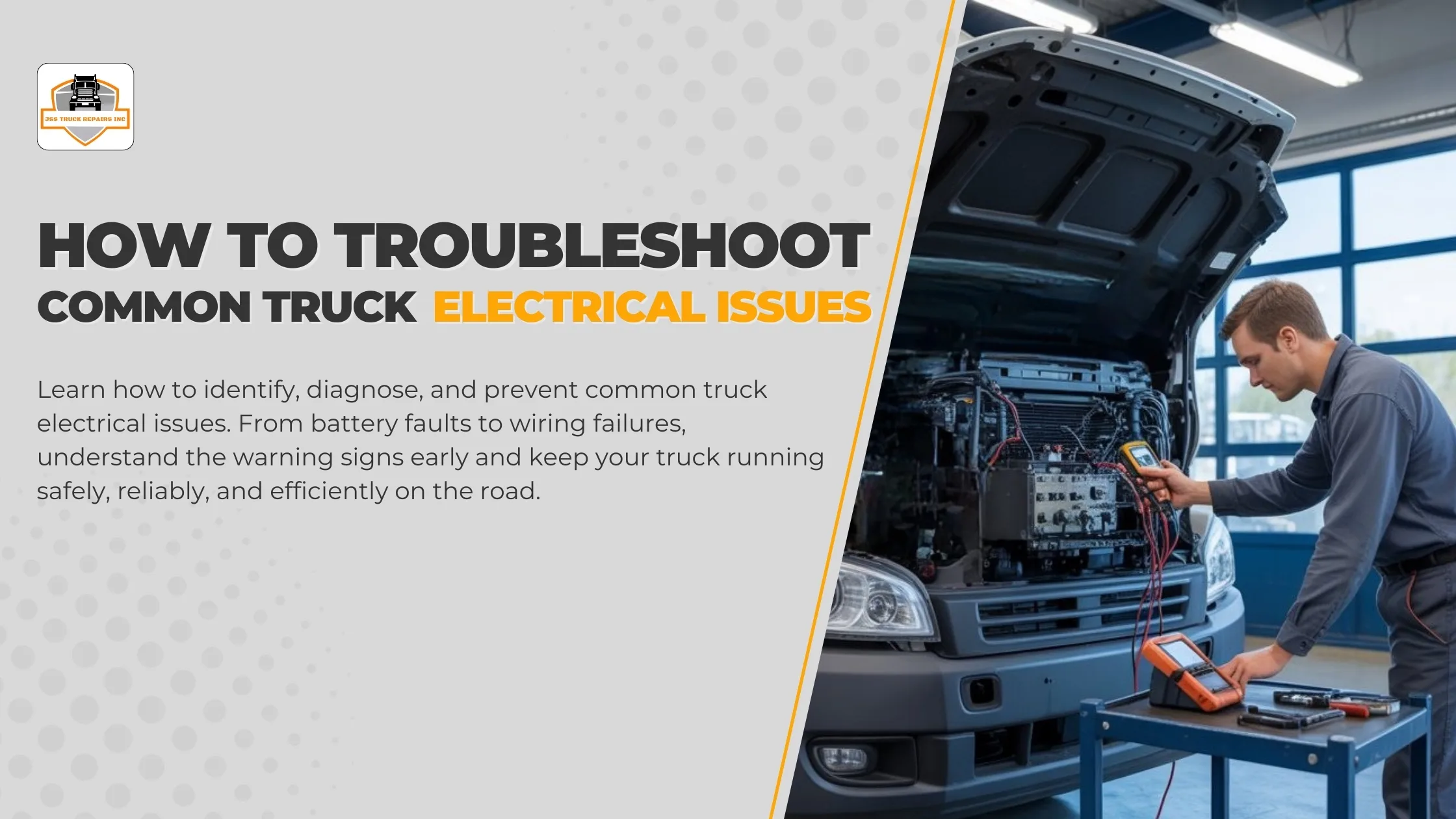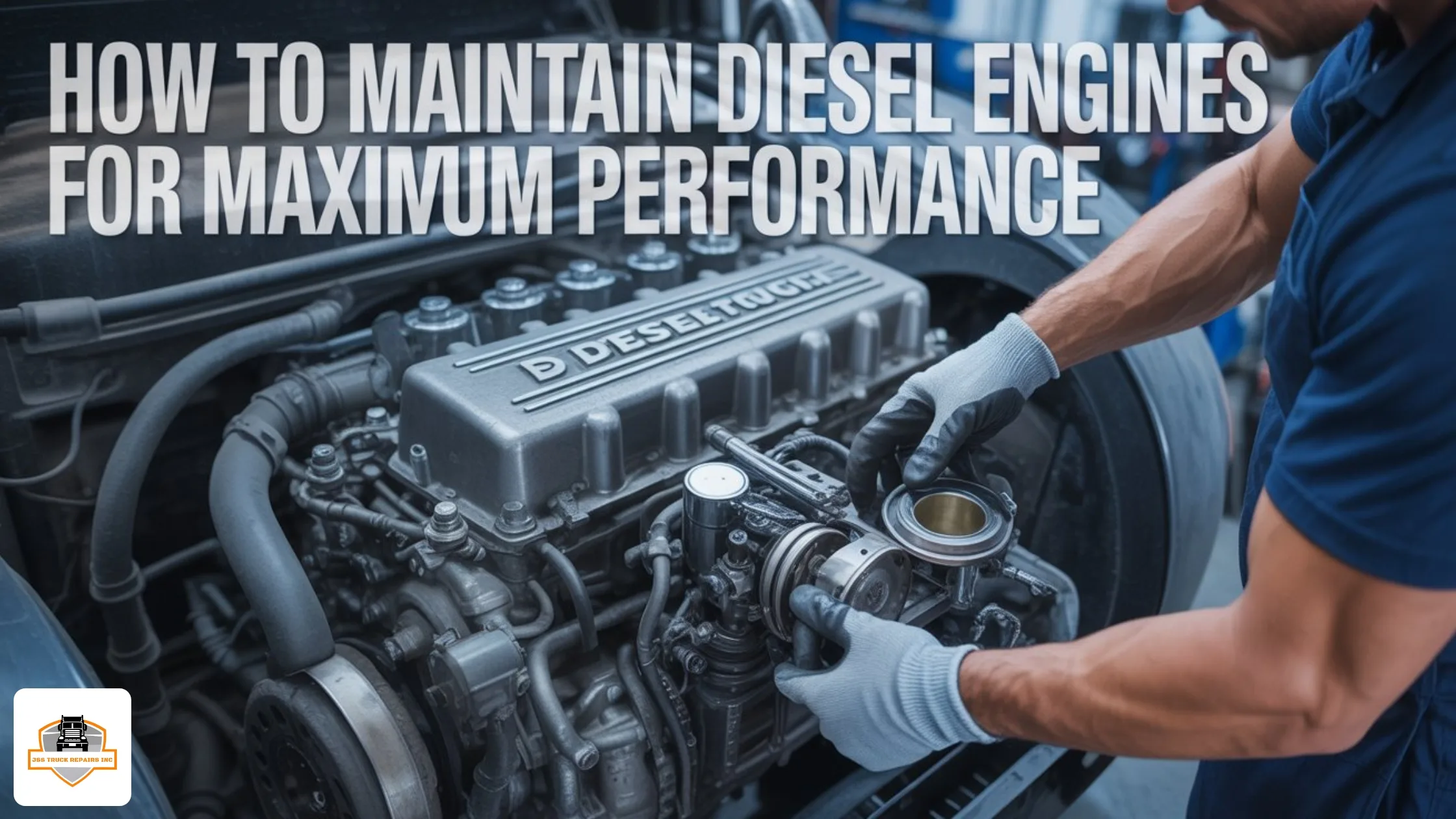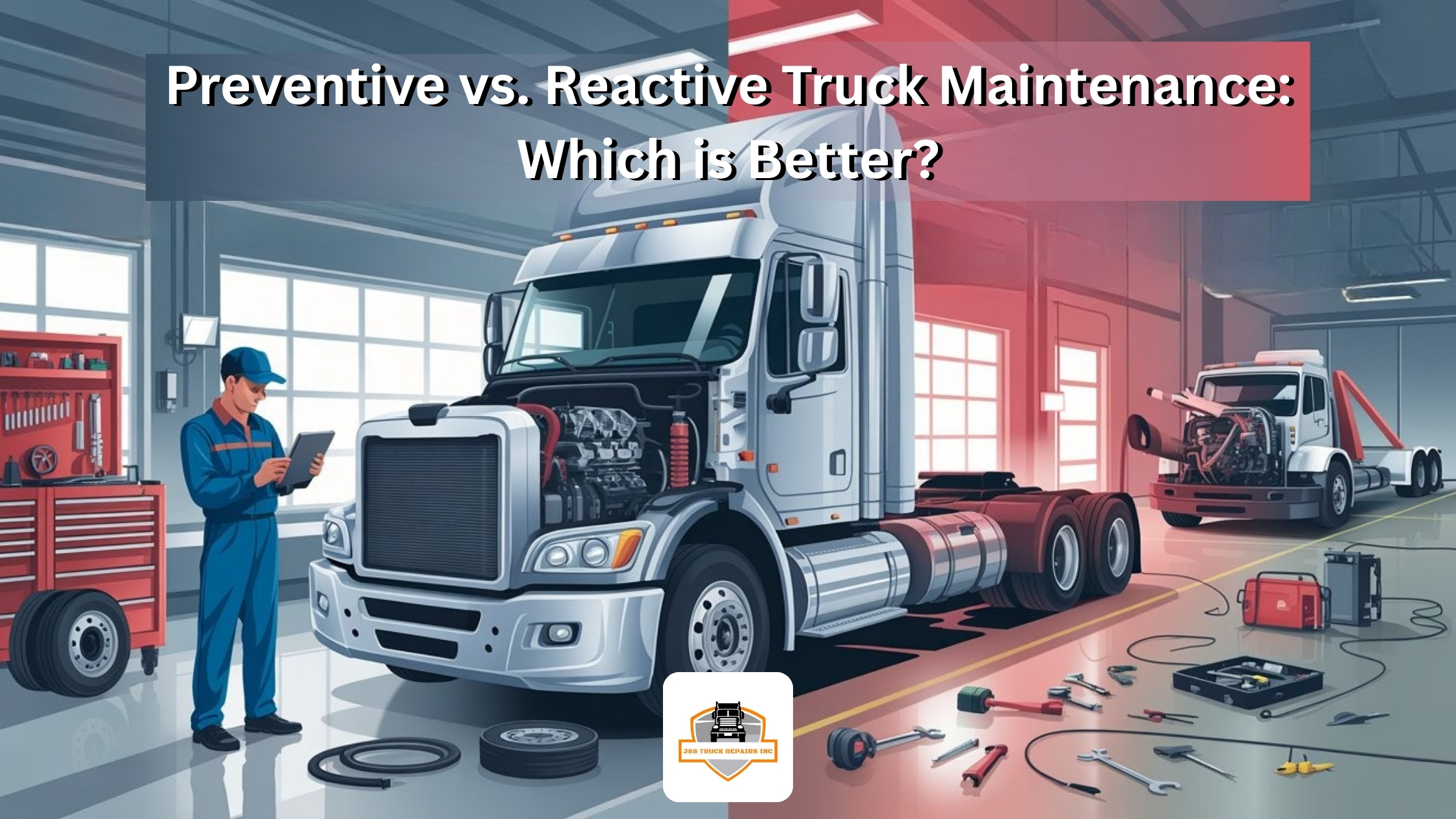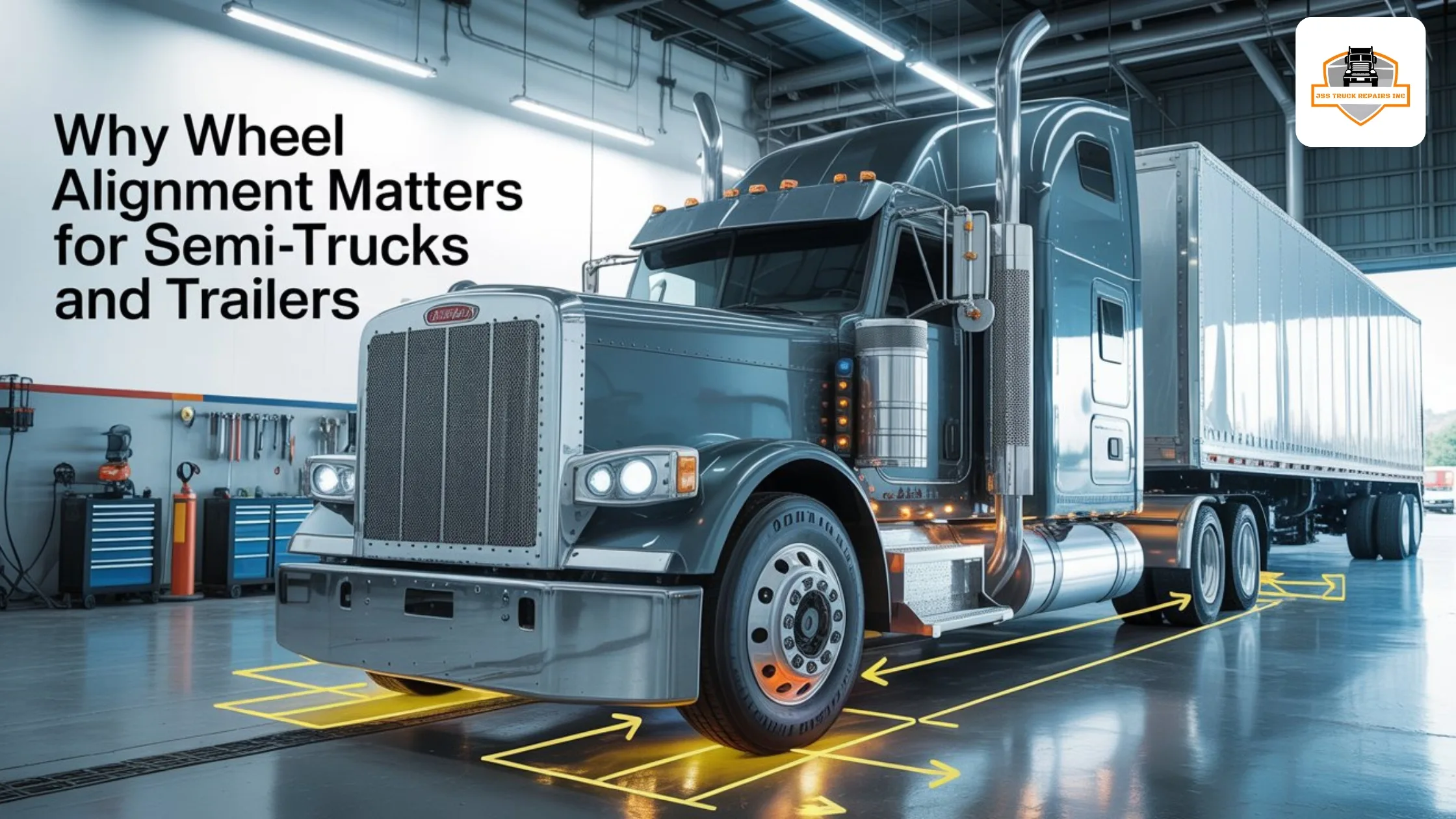Introduction
Truck suspension repairs are vital in keeping heavy-duty vehicles safe, stable, and roadworthy. Whether you’re operating a commercial fleet or managing a single semi-truck, ignoring suspension issues can lead to costly breakdowns, poor handling, and even accidents. The suspension system absorbs road shocks, supports the truck’s weight, and ensures smooth driving over uneven terrain. When any part of this system wears out or fails, timely repair is essential to avoid further complications.
Why Truck Suspension Repairs Matter
Truck suspension repairs are crucial for ensuring safe and efficient operation. A faulty suspension affects more than just ride comfort—it impacts load stability, braking, and tire wear. The added strain on axles and other components can increase your repair bills and reduce your vehicle’s life span.
Heavy-duty suspension repair ensures your truck can handle large payloads and long-distance drives without excessive strain. Regular inspection and repair help maintain fuel efficiency, improve tire longevity, and reduce driver fatigue.
Common Suspension Problems in Trucks
Truck suspension repairs often involve addressing issues that arise from constant wear and tear. Here are the most common suspension problems:
- Worn-out shock absorbers: These lead to poor ride quality and reduced handling control.
- Broken or cracked leaf springs: A common issue in heavy trucks, causing instability and sagging.
- Air suspension leaks: Especially in semi-trucks, leaks cause imbalance and rough rides.
- Damaged bushings or control arms: These contribute to steering issues and unusual noises.
- Misaligned axles: Caused by rough terrain or overloading, resulting in uneven tire wear.
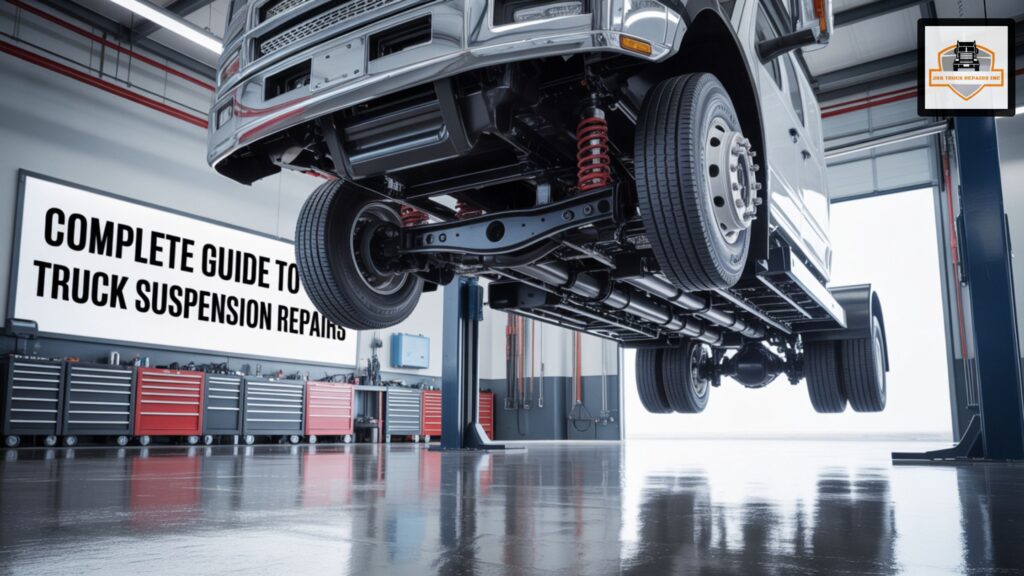
Signs That Your Truck Suspension Needs Repair
Truck suspension repairs become necessary when you notice symptoms like:
- Uneven or bouncy ride
- Excessive leaning or swaying on turns
- Nose-diving when braking
- Visible sagging in one corner of the truck
- Unusual noises like clunks or squeaks
- Steering instability or difficulty
- Irregular or accelerated tire wear
Shock absorber replacement or a leaf spring repair might be needed if you experience any of these signs. Ignoring them could lead to dangerous driving conditions and DOT violations.
Different Suspension Types in Trucks
Truck suspension repairs vary depending on the type of suspension system your vehicle uses:
- Leaf Spring Suspension: Common in heavy trucks, they are durable and ideal for heavy loads.
- Air Suspension: Offers smoother rides, often found in long-haul or luxury trucks. It requires routine maintenance to prevent leaks.
- Hydraulic Suspension: Offers adjustable load handling, though repair is more complex and costly.
- Torsion Bar Suspension: Less common but found in some medium-duty trucks, providing load-adjustable height.
Understanding your suspension system helps in identifying potential issues and scheduling the right repair or replacement.
Diagnosing Suspension Problems
Truck suspension repairs should begin with accurate diagnosis. A visual inspection is not always enough. Mechanics usually:
- Check ride height and suspension sag
- Inspect shocks, springs, and linkages for wear
- Perform a bounce test to check damping efficiency
- Use laser alignment tools to assess axle position
- Test air pressure in air suspension systems
Commercial truck suspension inspections often uncover hidden problems like minor cracks, damaged mounts, or oil leakage from shocks.
Steps Involved in Repairing Truck Suspensions
Truck suspension repairs require methodical steps to restore proper functionality:
- Lift the truck safely and remove the wheels.
- Inspect all suspension components (bushings, shocks, leaf springs, mounts).
- Replace worn or damaged parts with OEM or heavy-duty alternatives.
- Align the axles and steering system after part replacement.
- Test drive the truck to ensure issues are resolved.
- Perform a torque check on all suspension fasteners.
Rear suspension repair may involve spring packs, air bags, or mounting brackets depending on your truck model and load requirements.
Mobile Truck Suspension Repair Services
Truck suspension repairs can now be done through mobile suspension repair services—a game-changer for fleet managers and owner-operators. Instead of towing your truck to a repair shop, a certified technician comes to your location.
These services are especially useful when:
- You’re stuck on the roadside with suspension failure.
- You manage a busy fleet and can’t afford downtime.
- Your truck has air ride issues that make it unsafe to drive.
Look for providers offering 24/7 mobile support, such as JSS Truck Repairs Inc, known for prompt, professional service in Etobicoke and across the GTA.
Cost and Time Estimates for Suspension Repairs
Truck suspension repairs range in cost depending on the components and complexity of the issue:
- Shock absorber replacement: $150–$400 per unit
- Leaf spring repair or replacement: $300–$900 per axle
- Air suspension repair: $500–$1200
- Control arm/bushing replacement: $200–$600
- Full suspension overhaul: $1,000–$3,000+
Repair times vary from 2 hours (simple replacements) to over 8 hours for full replacements or alignments.
How to Choose the Right Repair Shop
Truck suspension repairs should only be handled by experienced professionals. When selecting a shop, consider:
- Certifications (310T mechanic or Red Seal certified)
- Experience with heavy trucks and trailers
- Access to OEM and heavy-duty parts
- Mobile service availability
- Transparent pricing and warranty policies
- Online reviews and customer feedback
If you’re in the GTA, visit our truck repair shop in Etobicoke for expert suspension diagnostics and repairs.
Routine Suspension Maintenance Tips
Truck suspension repairs can be avoided or delayed with proper maintenance. Here’s how to keep your system in top shape:
- Inspect shocks, springs, and bushings every 15,000–20,000 km
- Avoid overloading your truck
- Rotate tires and check alignment frequently
- Lubricate suspension joints as part of routine servicing
- Replace worn components before they fail
- Use trusted service providers for regular check-ups
Suspension maintenance tips like these not only improve ride quality but also reduce long-term repair costs.
FAQ Section
1. What causes suspension problems in trucks?
Suspension problems often result from heavy loads, poor road conditions, worn-out components, and lack of maintenance.
2. How often should I inspect my truck’s suspension?
A full inspection is recommended every 20,000 km or at every oil change, whichever comes first.
3. Can I drive with bad suspension?
Driving with damaged suspension can be dangerous and may lead to steering problems, increased braking distance, and uneven tire wear.
4. How long do truck shocks and leaf springs last?
Shocks typically last 80,000 to 160,000 km, while leaf springs can last longer if not overloaded.
5. What’s the benefit of mobile suspension repair services?
Mobile services save time, reduce towing costs, and provide emergency fixes without disrupting delivery schedules.
Conclusion
Truck suspension repairs are essential for safety, performance, and comfort. Whether it’s a cracked leaf spring, worn shock absorber, or leaky air suspension, timely repair prevents bigger issues down the road. Don’t wait for breakdowns—stay proactive with routine inspections and maintenance. For fast, reliable, and certified service in the GTA, trust JSS Truck Repairs Inc—your expert in truck suspension repairs.
